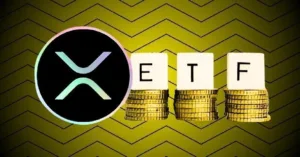Distributed ledgers are ledgers in which data is stored across a network of decentralized nodes. A distributed ledger does not necessarily involve a cryptocurrency and may be permissioned and
A distributed ledger is a system for recording the transaction of assets in a decentralized manner. Unlike centralized solutions, such as databases, distributed ledgers do not have a central repository for storing recorded data. Nodes process and verify transactions. Distributed ledgers can be public, such as most publicly traded blockchains, or private and permissioned, such as blockchains or distributed ledgers used by enterprises. Distributed ledgers can record static and dynamic data.
Distributed ledger technology in the form of blockchains has mainly financial applications. The most popular example of a distributed ledger technology is Bitcoin, which is used almost exclusively for storing wealth and sending transactions. Non-public examples often refer to financial use cases, too. Banks, for example, use it to secure internal transaction flows.
Distributed ledger technology can also be used in other industries. For instance, government agencies experiment with it to record data like ownership titles. The healthcare sector could use it to record medical records. Businesses already use distributed ledger technology in supply chains.
Distributed ledgers can also be useful to individuals in order to secure their private data and intellectual property rights. In essence, this technology can:
Distributed ledger technology can refer to blockchains, although blockchains are not the only example. For instance, Tangle is an alternative to common blockchains as distributed ledger technology. It is being developed by IOTA and aims to power Internet of Things ecosystems.
A blockchain is a type of distributed ledger technology, but not all distributed ledgers are blockchains. Blockchains chain their data together in blocks. However, distributed ledgers do not necessarily rely on the chain approach. Data can also be loosely structured or completely unstructured, depending on the design of the distributed ledger.
Back to Glossary Index Page




